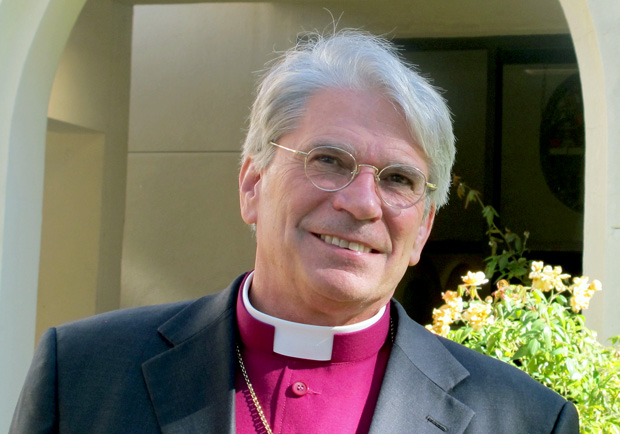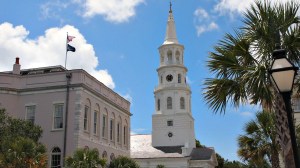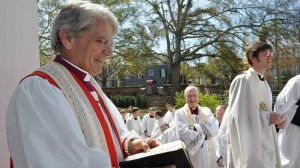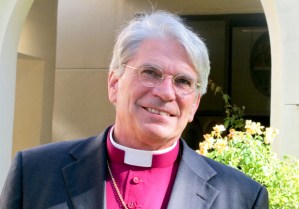In this series
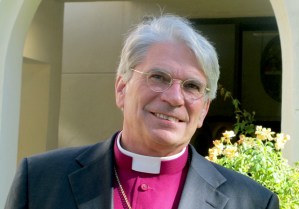
When disgruntled congregations have left hierarchical denominations such as the Episcopal Church, they've often lost property battles as civil courts ruled buildings and land are not theirs to keep.
But outcomes could be different this year, court watchers say, as high-profile cases involving dozens of Episcopal congregations in South Carolina and Texas wind their way through state courts. That prospect has observers watching for insights that could shape legal strategies in other states and denominations.
Both cases involve conservative dioceses that voted to leave the Episcopal Church over homosexuality, among other issues. In South Carolina, congregations representing about 22,000 people are suing the Episcopal Church for control of real estate worth some $500 million and rights to the diocese's identity. In Texas, the national Episcopal Church is suing about 60 breakaway congregations in the Fort Worth area for properties estimated to be worth more than $100 million.
The Episcopal Church argues, as it has in past cases, that local properties are held in trust for the denomination and can't go with parishioners who choose to disaffiliate. But recent court actions are giving breakaway groups hope that things might go differently this time.
In South Carolina, plaintiffs are encouraged by a 2009 ruling by the state Supreme Court that allowed All Saints Church of Pawley's Island to retain property despite having left the Episcopal Church. If other breakaway churches have similar documents as All Saints did—deeds and contracts that show no intention to hold property in trust for the Episcopal Church—then they could win, according to Lloyd Lunceford, a Louisiana attorney and editor of A Guide to Church Property Law.
"When no trust exists at all, the local church wins," Lunceford said. "The South Carolina Supreme Court, like many state supreme courts, has held that the mere presence of an assertion of a trust (existing) in a denominational constitution is insufficient to create a valid legal trust. There has to be more."
In considering the breakaway churches' appeal in the Fort Worth case, the Supreme Court of Texas is hearing its first church property case since 1909. The court is expected to clarify whether church property disputes in Texas will be decided by so-called "deference principles," which prevailed in 1909 and tend to favor top hierarchical entities.
Another option is to apply "neutral principles," which consider such factors as canon law, state law and agreements made among local churches, dioceses and other denominational entities.
Courts have increasingly used neutral principles, observers say, in part to avoid becoming ensnared in polity or theological debates. If the Texas high court uses that approach, then departing churches could win on the grounds that Texas law broadly allows for the revocation of trusts, according to Scott Brister, a former Supreme Court of Texas justice who's now representing the Fort Worth defendants.
Revocable trusts, Brister said, include any that might be established by the Episcopal Church's so-called Dennis Canon, which was added in 1979 and says parish properties are held in trust for the Episcopal Church.
"We've got defenses that say we never agreed to the Dennis Canon, but let's say for the sake of argument that we did" agree to it, Brister said. "Under Texas law, you can revoke it," he said, adding that the Diocese of Fort Worth did exactly that more than 20 years ago.
The Episcopal Church, however, has a history of winning property cases, and expects to build on that success. Fort Worth Episcopal Bishop Rayford B. High Jr. argues the Dennis Canon is binding since local churches agreed to abide by it.
"They were given access to church titles and church properties because they promised to abide by the Episcopal Church" and its canons, High said. "Commitments were made. You can't just decide a little later on,'I think I'll change my mind.'"
In South Carolina, the case is no slam dunk for recently departed churches, according to Martin Nussbaum, a Colorado Springs lawyer who specializes in church property cases. He notes the Episcopal Church has prevailed in most of its property cases, in part because local churches have agreed to abide by the Episcopal Church's constitution.
But, he adds, the South Carolina Supreme Court 2009 Pawley's Island decision could help today's plaintiffs win.
"It's possible that the secessionists will have some success for some time, as long as they're in the South Carolina courts," said Nussbaum, an attorney with Rothgerber Johnson & Lyons. "If it goes over to (the U.S. Supreme Court), they'll lose."
To date, the U.S. Supreme Court has shown little interest in reviewing state decisions in church property cases. Brister expects that will not change, and state decisions will stand. The high court's reticence to intervene might bode well for breakaway Anglicans in South Carolina, according to Robert Tuttle, professor of law and religion at George Washington University Law School.
"In South Carolina, where the South Carolina Supreme Court has ruled in favor of a separating congregation, (lower court justices) might be more sympathetic to the claim of the separating diocese of South Carolina" than judges in other states might be, Tuttle said.
Both the Texas and South Carolina cases are being watched closely, in part because of their size. Both involve dioceses and dozens of churches in large states, where jurisprudence can influence how judges in other states approach property cases, according to Brister.
The Texas decision "could influence other states, depending on what the circumstances of their state laws are," Brister said.

